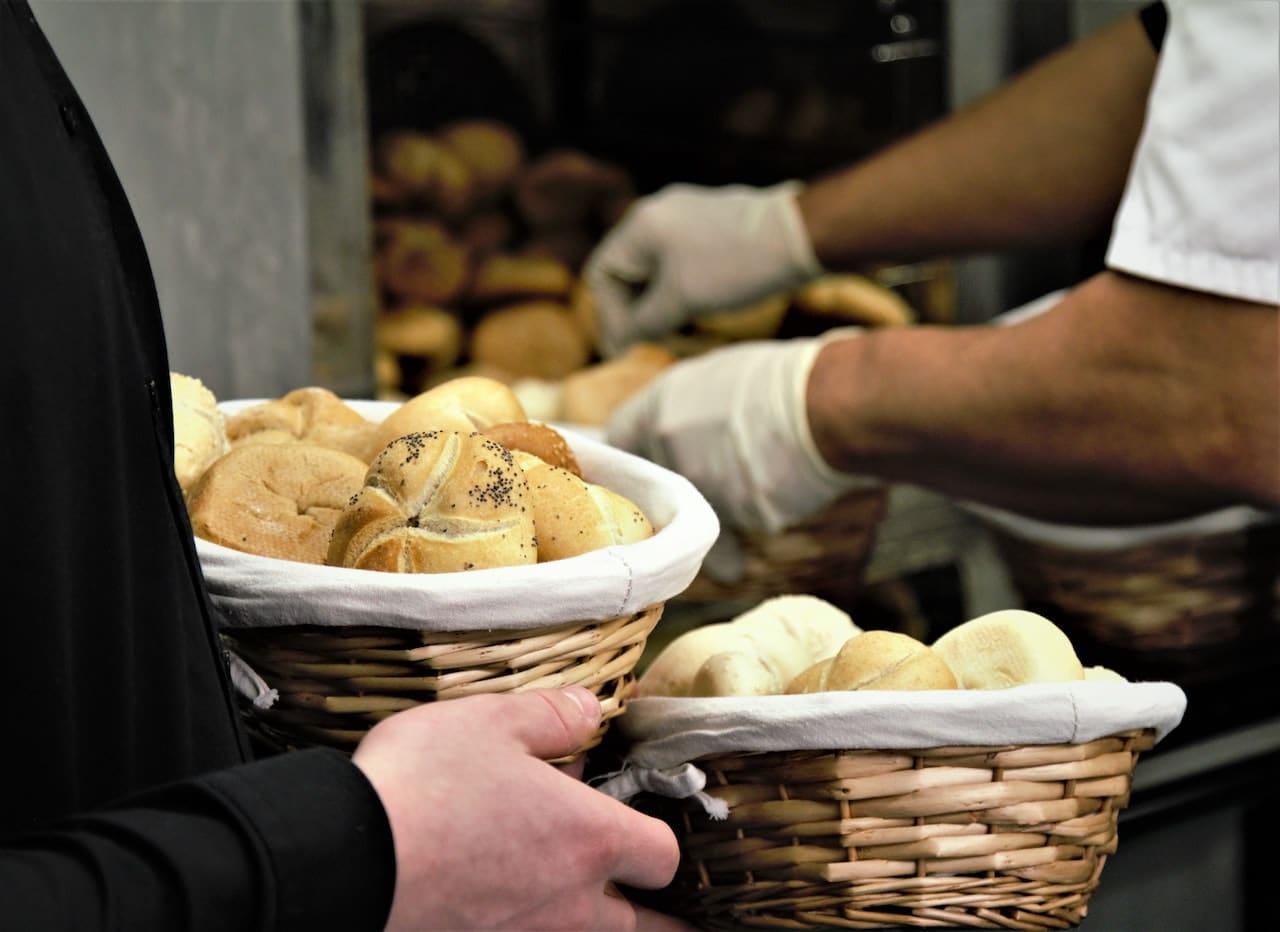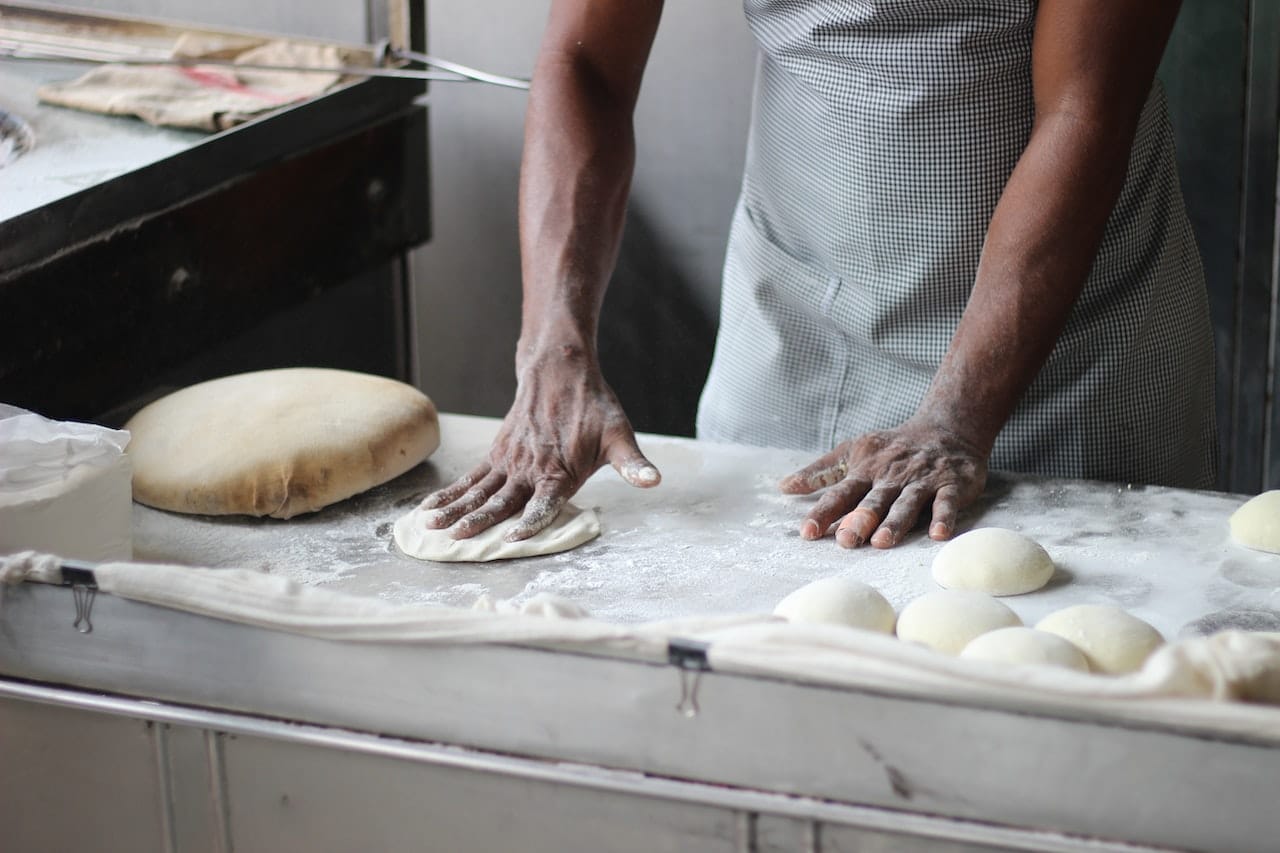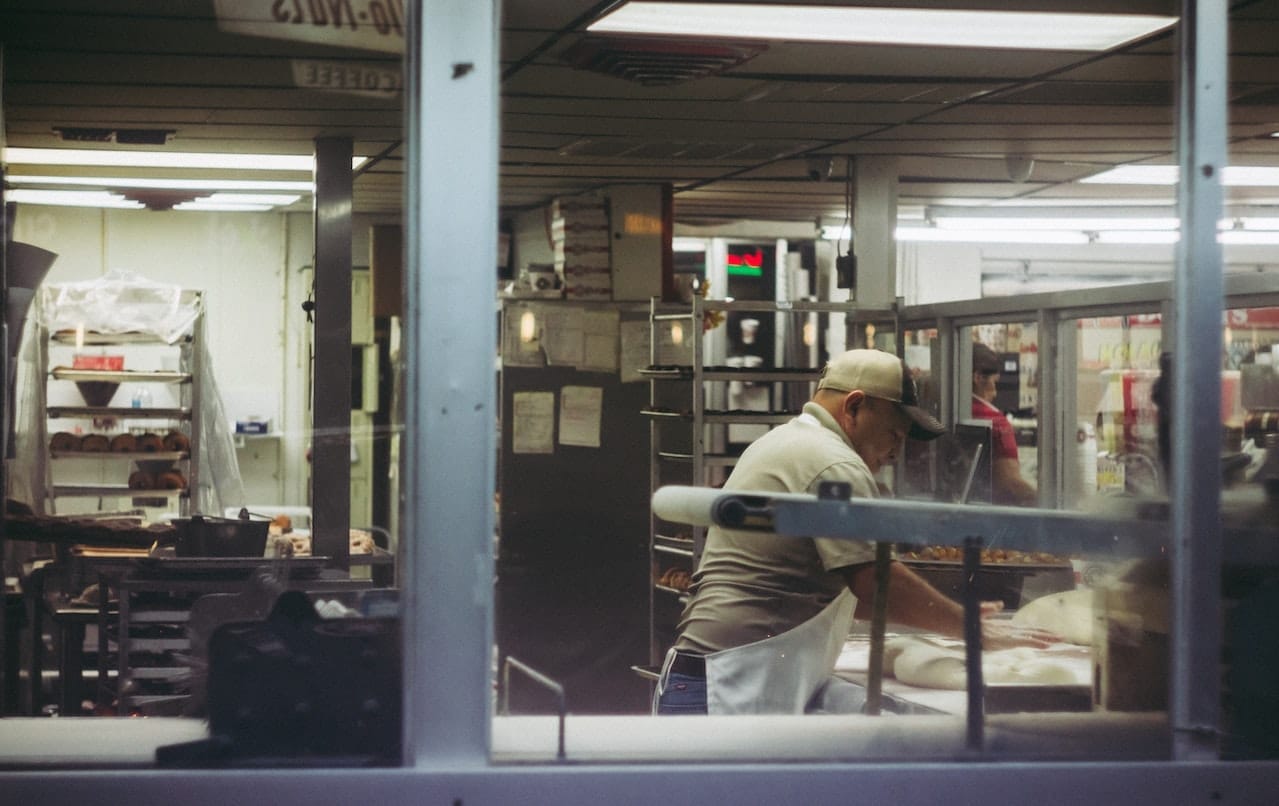We conducted a PESTLE analysis of the bakery industry to see what external factors impact the bakery industry, like politics, economy and technology.
Are you a fan of bakery items? If yes, keep reading because this article is about the entire bakery industry. If you want to visit heaven on earth, simply visit any bakery near you.
The sweet smell of bread and dough will surely take you out of this world. Bakeries may look small and simple because they are generally not really fancy. However, the bakery industry is one of the most significant industries.
In 2020, it was estimated that the market size of global bakery products was $397.90 billion. The bakery industry is predicted to grow at a rate of 5.12% and reach $590.54 billion by 2028.
Since the bakery industry is one of the growing industries, today, we will conduct the PESTLE Analysis of the Bakery Industry to see what external factors impact the bakery industry.
Before proceeding to the PEST analysis, let's discuss what a bakery is and how it emerged. A bakery is a place that mainly offers baked products. At least, that was the core concept of bakeries for the longest time.

The demand for baked products has been there for thousands of years. People have been making and selling bread and other baked products for centuries. However, the first proper market for baked products was established in Paris during the colonial era.
From there, bakeries started to expand, and the bakery industry experienced innovation. The bakery industry has undergone significant innovations over the years, driven by technological advances, changing consumer preferences, and the need for greater efficiency and productivity.
These innovations have transformed the industry, improving quality, increasing production, and greater business profitability. One of the significant innovations in the bakery industry has been the introduction of automation in the production process.
Automation has enabled bakeries to produce larger quantities of baked goods more consistently and efficiently. In addition, automated equipment such as mixers, ovens, and packaging machines have greatly improved productivity and reduced labor costs.
Computer-controlled ovens and mixers have ensured that baked goods are consistently high quality. In addition to automation, the bakery industry has introduced new ingredients, flavors, and techniques.
Consumers are increasingly looking for healthier options and innovative flavors, which has led to the introduction of whole-grain flour, gluten-free options, and new flavors. This has also led to a rise in artisanal bakeries specializing in unique, handcrafted products.
Due to innovation, the bakery industry has grown over the years, and it has spread all across the globe. European countries produce the highest-value bakery products worldwide. If you ever visit France, don't forget to eat French pastries. They are actually the most amazing pastries on the earth.
Now that we have discussed the evolution of the bakery industry and have an insight into the industry let's discuss what PESTLE analysis is. PESTLE analysis is a tool organizations use to analyze what external environmental factors affect organizations and industries.
In today's PESTLE analysis, we will discuss the political, social, environmental, technological, legal, and economic factors impacting the bakery industry. Let's proceed further and carry out the bakery PESTLE analysis.

Political Factors Affecting The Bakery Industry
The bakery industry is an essential part of the food and beverage sector. Various factors, including political factors, influence its operations. In this essay, we will explore the political factors that affect the bakery industry in this section.
Government regulations are essential to any industry, and the bakery industry is no exception. The government establishes regulations and laws to ensure that businesses operate safely, fairly, and comply with the laws.
One of the critical areas of regulation for the bakery industry is food safety. The government sets standards for food quality, storage, and preparation to ensure food is safe for consumption. The bakery industry must comply with these regulations to maintain consumer trust and avoid potential legal or financial consequences.
Moreover, changes in tax policies can significantly impact the bakery industry's production costs and profitability. For example, increased tax rates can increase the cost of raw materials, energy, and other inputs required in the bakery production process.
Besides these two factors, political stability is critical to the bakery industry's operations. Political stability refers to the absence of political unrest or instability in a country, including social upheavals, political turmoil, or civil unrest.
When a country experiences political stability, it provides a healthy environment for businesses to operate and grow. In contrast, economic instability can negatively impact the bakery industry, reducing consumer spending and demand for bakery products. This, in turn, can lead to decreased revenue and profitability for the industry.

Economic Factors Affecting The Bakery Industry
Economic factors refer to the broader economic environment in which the bakery industry operates, including inflation, economic growth, interest rates, and exchange rates. These factors significantly impact the bakery industry's operations and profitability.
Inflation is one of the most critical economic factors affecting the bakery industry. Inflation hints at the increase in prices of goods and services over time. Inflation can impact the bakery industry in several ways.
Firstly, it can increase the cost of raw materials, such as flour, sugar, and butter, which are essential ingredients in bakery products.
As a result, this can cause an increase in the price of bakery products, reducing the industry's profitability. Secondly, inflation can lead to increased labor costs, as wages may need to be adjusted to match the rising cost of living.
Another critical economic factor that affects the bakery industry is economic growth. Economic growth refers to the country's gross domestic product (GDP) increase over time.
A growing economy can create opportunities for the bakery industry to expand operations and reach new customers. But conversely, a stagnant or shrinking economy can limit the industry's growth potential and profitability.
Interest rates are another important economic factor that affects the bakery industry. Interest rates highlight the cost of borrowing money from financial institutions. High-interest rates can increase the industry's borrowing costs, making it more challenging to access credit, invest in new technologies, or expand operations.
Additionally, high-interest rates can lead to reduced consumer spending, as consumers may need to allocate more of their income towards debt repayment, reducing demand for bakery products.

Social Factors Affecting The Bakery Industry
Social factors are the cultural, demographic, and societal trends influencing consumer behavior and preferences. These factors significantly impact the bakery industry's operations.
One of the most critical social factors that affect the bakery industry is changing consumer preferences. Consumers today are increasingly health-conscious and demand healthier options, such as whole-grain bread and low-sugar pastries. The bakery industry must adapt to these changing preferences to remain competitive and meet customer needs.
Demographic trends are also an essential social factor that affects the bakery industry. The aging population is a demographic trend transforming consumer preferences and demands. As the average age of the population increases, there is a growing demand for products that cater to the specific dietary needs of seniors, such as low-salt and low-fat options.
Another critical social factor that affects the bakery industry is cultural diversity. The industry must cater to its customers' diverse cultural tastes and preferences. For example, the growing demand for ethnic bread, such as naan and pita, reflects the changing cultural diversity of consumers.
The rise of e-commerce and social media is another social factor transforming the bakery industry. E-commerce platforms and social media allow the industry to reach a wider audience and promote its products.

Technological Factors Affecting The Bakery Industry
In the modern world, technological factors affect businesses in all industries, including the bakery industry. For example, the bakery industry has seen the introduction of modern ovens, mixers, and other equipment that have enhanced the efficiency and productivity of bakeries.
Developing specialized software programs has also enabled bakers to optimize their production processes and improve their recipe formulation. With the integration of technology in baking, bakers can now produce more products with less effort and higher quality than before.
Moreover, the rise of e-commerce has also impacted the bakery industry. Online baked goods sales have become increasingly popular, and technology has significantly facilitated this trend.
Online ordering systems and delivery platforms have made it easier for consumers to order baked goods from the comfort of their homes. In addition, with the help of online marketing and social media, bakeries can promote their products and reach a wider audience.
Mobile applications have also made it more convenient for customers to place orders and for bakeries to manage their inventory and deliveries.
Besides that, the bakery industry has also been impacted by the introduction of new packaging technology. Advanced packaging materials such as biodegradable and eco-friendly materials have become increasingly popular in the bakery industry.
These materials are not only more environmentally friendly, but they also offer superior protection to baked goods, which helps to extend their shelf life. In addition, with the help of technology, bakers can also design attractive packaging that appeals to their customers.

Legal Factors Affecting The Bakery Industry
The bakery industry is an essential component of the food industry. As such, it is subject to various legal regulations and requirements that affect its operations. This section will highlight the legal factors affecting the bakery industry.
The bakery industry is subject to food safety regulations set by local, state, and federal authorities. These regulations are imposed in place to ensure that the products produced by bakeries are safe for consumption.
Bakeries must comply with these regulations by implementing appropriate hygiene practices, using approved ingredients, and maintaining proper storage and handling procedures. Failure to comply with these regulations can result in legal consequences such as fines, closure of the bakery, and even criminal charges in severe cases.
Moreover, the bakery industry is also subject to labor laws. These laws cover minimum wage, overtime pay, working hours, and discrimination. Bakeries must adhere to these laws to avoid legal disputes with employees or labor unions.
It is also essential for bakeries to maintain proper records and documentation of their employment practices to demonstrate compliance with these laws.

Environmental Factors Affecting The Bakery Industry
The bakery industry is impacted by various environmental factors. One of the factors that affect the bakery industry is climate change. The impact of climate change on the bakery industry can be seen in the fluctuations in prices and availability of raw materials such as flour, sugar, and butter.
Climate change can cause severe weather conditions, such as droughts or floods, which can affect the production and quality of raw materials. As a result, bakeries need to take steps to manage their supply chain and find alternative sources of raw materials to reduce the impact of climate change on their operations.
The availability of water resources also impacts the bakery industry. Water is a critical resource for producing bread and other baked goods. However, water scarcity is becoming increasingly significant in many parts of the world.
Bakeries must implement sustainable water management practices to reduce water consumption and minimize environmental impact. Besides that, waste management regulations also impact the bakery industry.
The production of baked goods generates significant amounts of waste, including food, packaging, and wastewater. Therefore, bakeries must implement effective waste management practices to reduce the amount of waste they generate and minimize their environmental impact.
This includes using eco-friendly packaging materials, composting food waste, and treating wastewater before it is discharged.

PESTLE Analysis of The Bakery Industry: Final Word
The bakery industry is one of the most significant industries worldwide, with a growing market size. In this article, we conducted a PESTLE analysis of the bakery industry to see what external factors impact the bakery industry.
This article highlighted different political, social, environmental, technological, legal, and economic factors impacting the industry. Besides that, this article must have made you aware of the PESTLE analysis framework.
If


